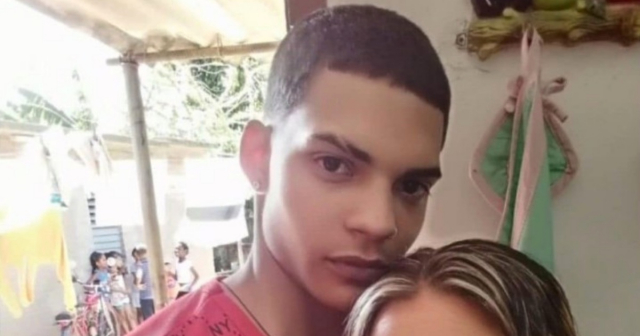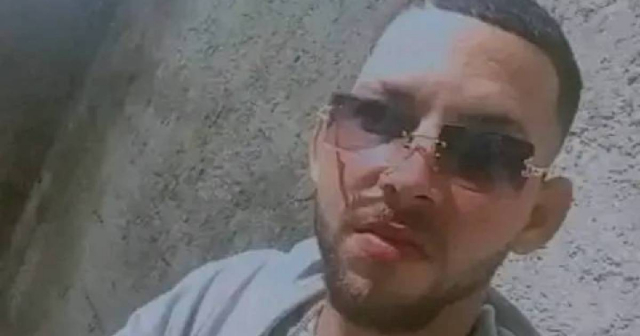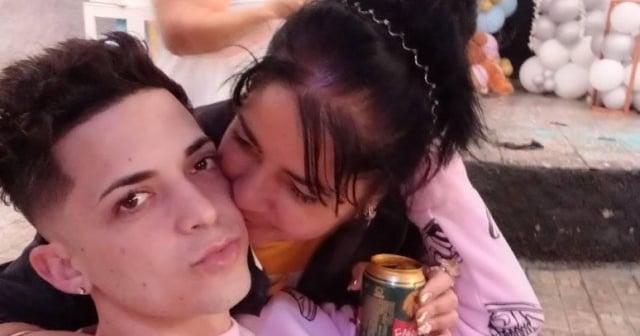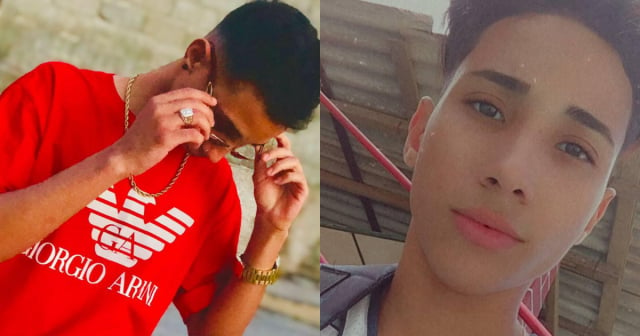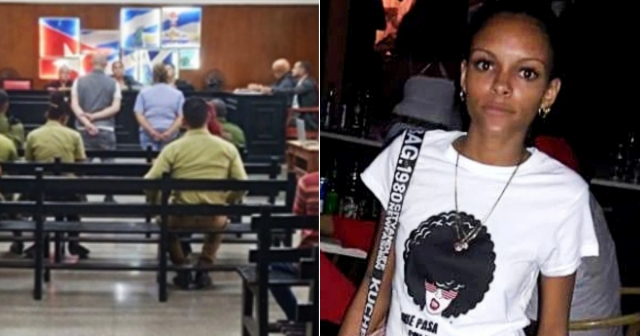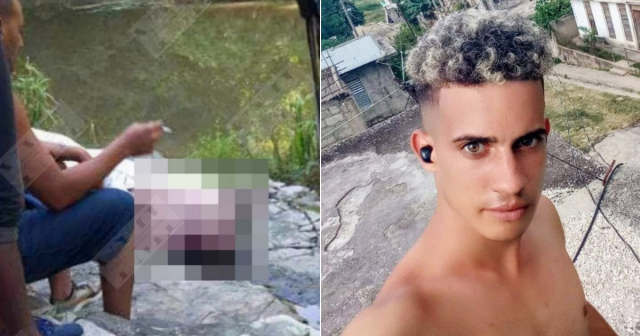Isauri Aguilar Leyva was an only child and he was murdered at the age of 20 in a fight in Holguín that he did not start. "He went to defend a friend. He was unarmed and didn’t have anything on him. He was a calm and very nice boy," says someone close to the deceased. Two months after the incident, there is still no date for the trial. The murderer has been identified and is in prison, but justice has not been served.
Aguilar Leyva lived in the Holguin neighborhood of Reparto Harlem, better known as El Guarro, and rarely left his house. Those who knew him describe him as a calm person who spent the day playing with his cellphone.
On June 5, Isauri Aguilar Leyva's mother went to work, as usual, at a restaurant in Holguín, where she works as a saleswoman. At nine in the evening, she received a call, telling her to urgently go to the hospital because her son had had a problem. When she arrived, she found him dead. She did not know what had happened.
The next day, the family learned that at around 5:44 PM on June 5, Isauri Aguilar's grandmother heard her grandson talking on the phone. The woman asked him what was happening, but the young man refused to tell her anything. He replied that "it was private." Shortly after, at 6:00 PM, as usual, the power went out. The grandmother, who never takes a bath early, did so that day before the blackout.
Whenever the power went out, Isauri Aguilar Leyva would sit with a girl friend in a park across from his house. There, he would meet with a boy from the neighborhood who also used to go to that area daily. They were not friends, but they knew each other. It was this boy who called him on his mobile when the deceased didn't want to tell his grandmother what was happening. In that call, he asked him to defend him from another young man, "from Viña." Aguilar Leyva, more prudent, told him to let it go. His "friend" looked for another person and a weapon. That was when the fight started in the little park.
When he saw Aguilar Leyva, they told him that if he didn’t join the fight, "he was a coward." Pressured, he joined in. A neighbor who saw him and tried to stop the young man from joining the brawl can attest to this. He told him, "Come here, don’t get into problems that aren’t yours." Aguilar Leyva responded that he wasn’t going to get involved, that he was just going to the corner, but the truth is that along with the others, they went to the aggressor's neighborhood, where several boys came out with sticks, rebar, and knives.
Isauri Aguilar and another young man started to run upon seeing so many people behind them. At that moment, a patrol passed by that arrived to break up the fight, although sources close to the political police claim they came to the neighborhood for another reason. Upon seeing the officers, the young man who ended up deceased and his companion ran and ended up trapped in a dead-end alley. They were scared and entered a house. The owner, upon seeing two strangers inside his home, forced them to come out, but he realized they were being chased and tried to speak with the murderer, who is only 19 years old and was accompanied by two others.
Isauri Aguilar Leyva pleaded with his killer to let him go. "He lifted his sweater twice to show that he wasn't armed. The killer pretended to leave, and at that moment, Isauri, without stepping out of the porch of the house where he was protected, leaned out to see if he had really gone, but at that moment, the killer stabbed him in the chest. He did it under pressure from another who scolded him for how he was going to leave without stabbing him."
Isauri Aguilar Leyva arrived dead at the hospital. His mother and grandmother are devastated. The investigation is ongoing, but there is no date set for the trial. The noble and calm young man who spent his days playing with his cellphone is dead. The murderer, aged 19, is in jail. It is known that his name is José Ramón Ramírez Martínez, that he had "a terrible behavior," and that it is expected that the full weight of the law will fall upon him. However, this trial has not been held with the urgency with which political crimes are prosecuted in Cuba.
Nothing will bring Isauri Aguilar Leyva back to his family, but his surroundings are convinced that the violence in Cuba "has to stop." Exemplary trials can help with this to prevent situations like that of the young man from Camagüey, Usielito Quesada Florat, who died from a stab wound to the back this week. He was killed by a young man who was on leave from prison for having murdered another person.
Also this week, Cuban authorities are investigating the death of a 20-year-old man in Baracoa, who was found dead while on guard duty in a prison in Guantánamo, where he was serving his military service. The family doubts that it is true that he hanged himself with a belt, having an AKM in his hands and being able to shoot himself.
Last Friday, in Sancti Spiritus, a young man identified as Hansel was murdered, although details of the crime have not yet emerged amidst an escalation of violence in Cuba. Only in July, the Cuban Conflict Observatory has unofficially recorded 18 violent deaths in the country.
More murders, assaults, and robberies.
The think tank Cuba Siglo XXI has identified 2023 as the year in which the regime recognized crime as a problem on the Island, with the months of July and June being the most violent. "Of the 649 reported crimes, 265 were thefts, 199 people were murdered in 197 incidents, and 124 people suffered assaults," the report accessed by CiberCuba states.
According to the Cuban Citizen Audit Observatory (OCAC), between January and June 2024, a total of 432 crimes were recorded, representing a daily average of 2.37 crimes, marking an increase of 152% compared to the same period in 2023 (1.82 crimes daily in 2023). The analysis shows a "concerning increase" in violent crimes in the first half of this year, highlighting a 111% increase in homicides, a 290% increase in assaults, and a 208% increase in robberies in the first half of 2024.
The OCAC attributes this increase in criminality to the de-capitalization and unprofessionalization of the Police; to changes in social and cultural values, and to "a growing perception of impunity and corruption within the Cuban judicial system." In light of this situation, it "makes an urgent call to the Cuban authorities to transparently address this concerning situation."
What do you think?
COMMENTFiled under:

